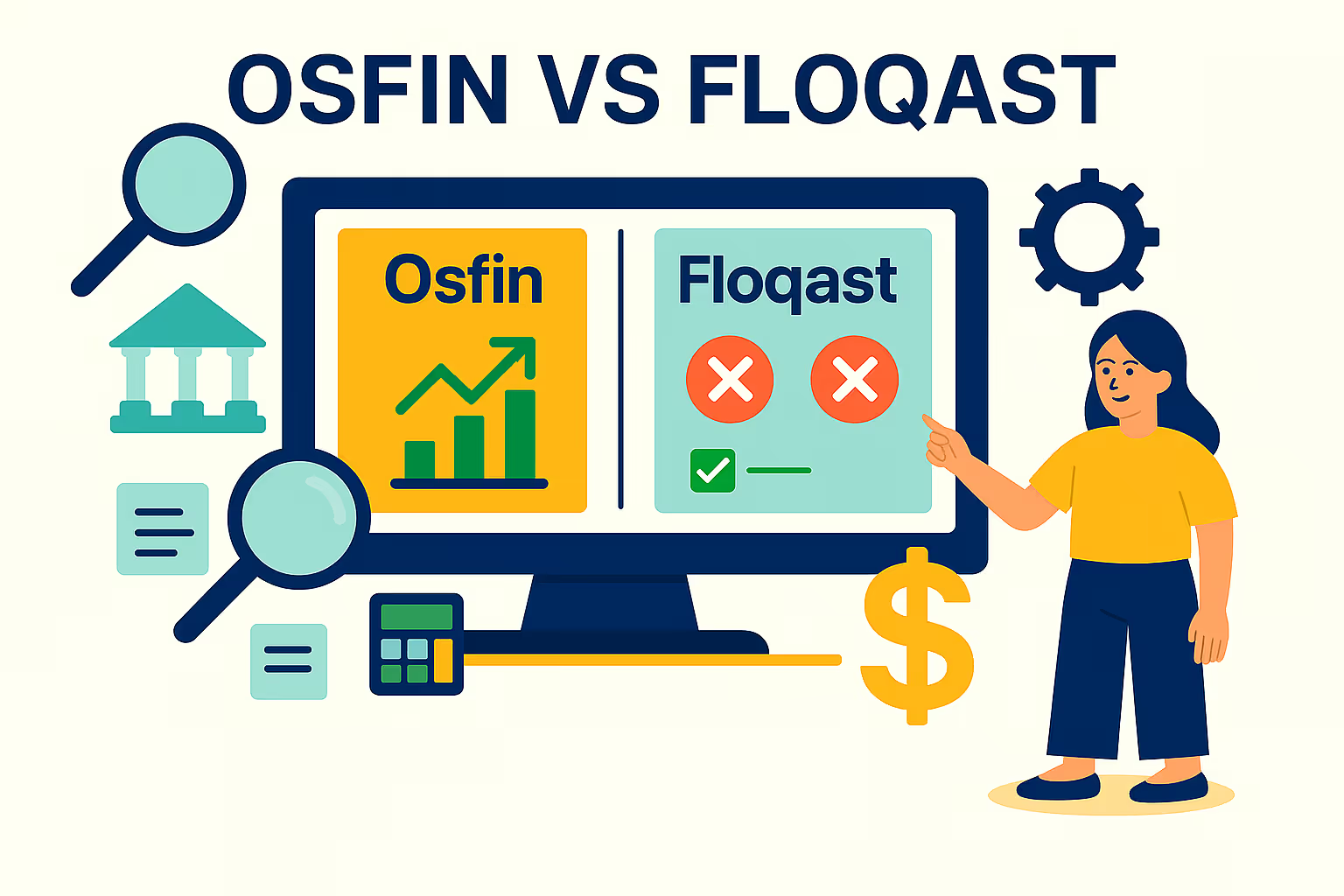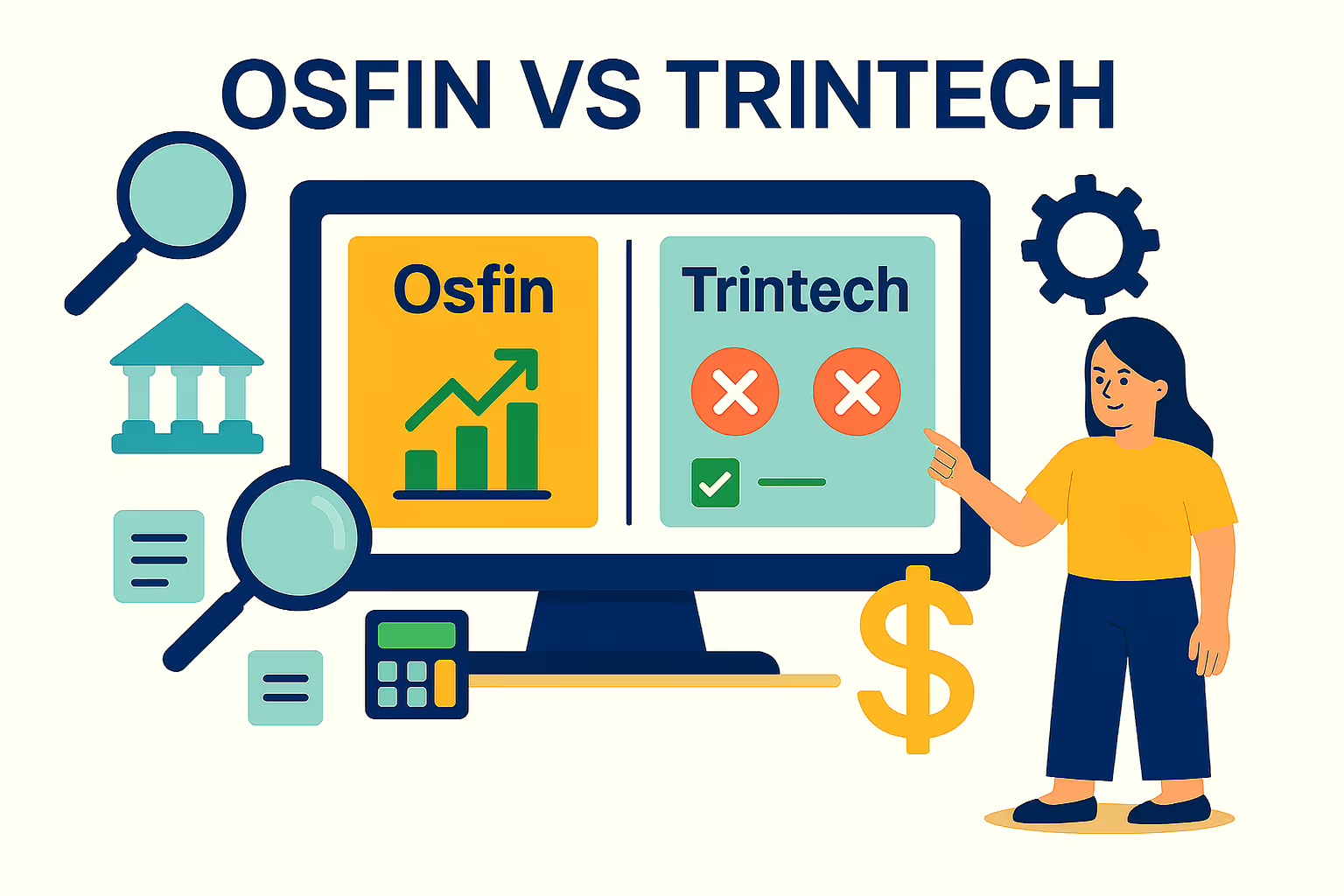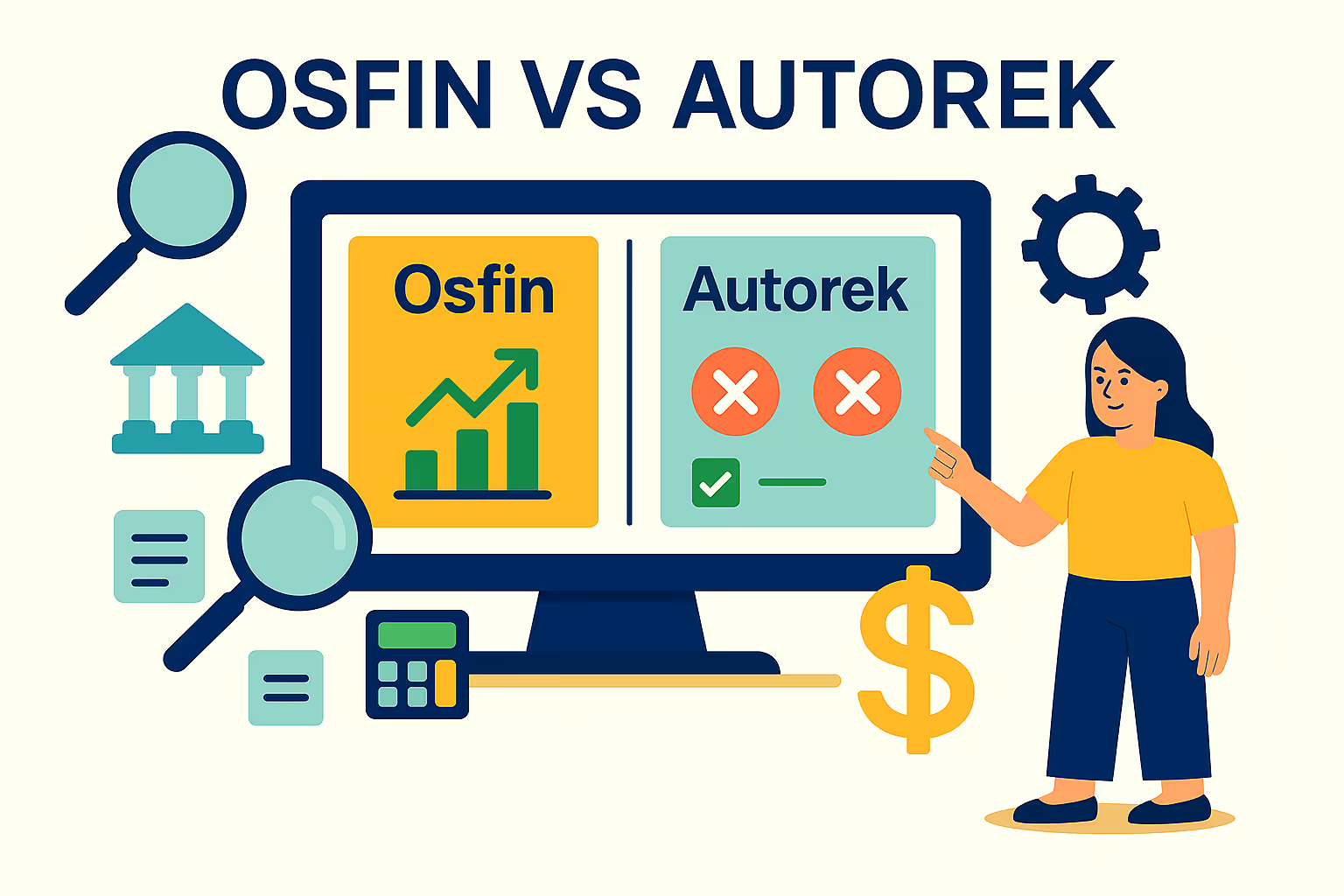What Are Unreconciled Transactions and How to Resolve Them Quickly
Every transaction your financial institution processes, ACH, RTP, wire, or card, passes through multiple systems before settlement. There's your internal ledger, the core banking system (CBS), card networks, and payment processors.
Each rail generates its own data formats, settlement timelines, and identifiers. These get routed through internal systems like the core banking platform, accounting tools, payment processors, and third-party APIs. When those data points don't match, you're left with unreconciled transactions.
In this article, you'll find out what causes these mismatches, how to identify them early, and what it takes to resolve them efficiently and at scale.
What this blog covers:
- What unreconciled transactions are and why they pose risks to finance teams
- Common causes of unreconciled items: timing mismatches, data errors, missing records
- How unreconciled transactions affect cash flow, audit readiness, and financial visibility
- Best practices to identify, investigate & resolve unreconciled transactions
- How automated reconciliation tools (like Osfin) help convert unreconciled items into matched entries
What are Unreconciled transactions?
Unreconciled transactions refer to a mismatch between records across two or more financial systems. These are transactions that show up in your internal ledger, processor reports, or core banking platform but don't align with the corresponding entry in your bank feed, settlement file, or third-party system.
Unreconciled transactions usually stem from missing reference IDs, amount mismatches, or timing gaps between when a transaction is initiated and when it's posted. They create blind spots in reporting, delay settlements, and require immediate attention to avoid downstream errors.
Typical Unreconciled Transactions
Unreconciled transactions can appear across any payment channel, ACH, wire, RTP, card, or wallet because they pass through multiple systems with different formats, timelines, and data structures.
Here are some common scenarios:
1. Missing Reference IDs
A transaction may be completed and settled, but if the reference ID is missing or altered during transmission, systems can't match it. This often happens when incoming files (CSV, MT940, JSON) strip or reformat fields.
2. Duplicate Entries
When a transaction is recorded twice, once through the API feed and again from a processor file like a BAI2 or SWIFT MT, it creates reconciliation noise. Unless flagged, this results in overstated balances.
3. Out-of-Sync Timestamps
Some systems log transactions based on initiation time, while others use processing or settlement timestamps. These differences cause failed matches during same-day reconciliation runs.
4. Partial Settlements
A bulk payout may show as a single debit in your ledger but appear as multiple credits in the settlement file. Without smart logic to map the amounts, these stay unreconciled.
5. Returned or Reversed Transactions
Reversals sometimes don't carry the original transaction ID. If reversal files (like ACH return codes or ISO 20022 CAMT messages) aren't linked correctly, they remain unmatched.
Common Causes of Unreconciled Transactions
Understanding the unreconciled transaction problem requires looking beyond the mismatches themselves. The root causes often lie in how data is exchanged, processed, or sometimes, completely missed.
1. Asynchronous Data Across Systems
Financial institutions often operate with multiple asynchronous systems: core banking platforms, payment switches, ERP tools, and third-party APIs. A transaction might be recorded in the ledger instantly but may take minutes or hours to reflect in the settlement file, especially across RTP or SWIFT rails. Without timestamp normalization, reconciliation fails.
2. Format Incompatibility
Different rails use different file structures like SWIFT MT103s, ISO 20022 CAMT messages, NACHA-formatted ACH files, card processor CSVs, or custom JSON payloads from APIs. Internal tools often expect one format and can't interpret another, leading to unreadable or ignored transactions.
3. Delayed Settlements from External Banks
Especially in cross-border scenarios, intermediary banks can take hours or days to confirm funds. A wire transfer may be recorded in the ledger based on the initiation, but the confirmation might come much later, creating temporary reconciliation gaps.
4. Metadata Loss or Broken Identifiers
When data flows through multiple systems, fields like transaction IDs, UTRs, and reference codes can get truncated, reformatted, or dropped entirely. A unique ID on the processor's side may not match what's logged in the ERP or core banking system, breaking the match logic.
5. Manual Reconciliation Gaps
Even with rule-based matching in place, manual processes still play a role, especially in exception handling. If exception queues aren't monitored daily, mismatches slip through. Manual reconciliation may overlook formatting anomalies or minor variances that automation could flag instantly.
{{banner3}}
How to Identify Unreconciled Transactions
Unreconciled transactions may sit unnoticed in exception files, delayed settlements, or mismatched reports until they disrupt financial reporting or customer payouts. Identifying them early is critical to maintaining accurate records and audit-ready books. Here's how to spot them:
- Compare data across systems daily using reference IDs, timestamps, and amounts to detect mismatches in real-time.
- Review exception reports generated by your reconciliation tool to flag transactions that fail auto-matching logic.
- Analyze file-level inconsistencies between ledger exports (CSV or JSON) and processor inputs (BAI2, MT940, NACHA).
- Use reconciliation dashboards to monitor aged transactions and surface entries stuck without a match for more than 24 hours.
- Check for duplicates and one-sided entries across API logs, bank feeds, and settlement files that were not posted properly.
How to Resolve Unreconciled Transactions
Resolving an unreconciled transaction requires tracing it across systems, understanding why it occurred, and fixing it without creating downstream inconsistencies. Here's how you can accomplish this:
1. Cross-Reference All Source Systems
Start by comparing entries across the ledger, payment processor files (e.g., BAI2, CSV, NACHA), and core banking system exports (e.g., MT940 or ISO 20022 CAMT files). If one system shows a debit or credit that doesn't appear in another, flag it. Use transaction date, reference ID, amount, and payer/payee fields to narrow down the gap.
2. Apply Fallback Matching Rules
For entries with missing or altered reference IDs, fallback logic helps. Match by partial identifiers, amount + timestamp, or mapped account details. For instance, if a SWIFT MT103 doesn't match a CBS entry due to formatting, use a fuzzy match on the beneficiary name and value date.
3. Escalate and Document Exception Handling
Some mismatches require approvals, like reprocessing a returned ACH or writing off a duplicate entry. Route these through a maker-checker flow and maintain an audit trail. Document the original transaction, reason for mismatch, and final resolution in a centralized log.
Risks of Ignoring Unreconciled Transactions
Ignoring unreconciled transactions leads to deeper issues like data gaps, broken workflows, or missing confirmations. These result in larger consequences if left unaddressed. Here's what's at stake:
- Revenue Leakage: Unmatched transactions can include missing credits or uncollected debits that directly impact your bottom line.
- Inaccurate Financial Positioning: Without reconciliation, treasury decisions rely on incomplete data, risking overdrafts or idle funds.
- Compliance Violations: Regulators expect traceability for every financial transaction; unmatched entries weaken your audit trail.
- Delayed Refunds and Payouts: Customers and merchants may not receive payments on time, eroding trust.
- Failed Audits and Reputational Risk: External audits may flag unreconciled balances as control failures, damaging your credibility.
- Operational Inefficiencies: Teams waste hours investigating issues that automation could have flagged and routed instantly.
Best Practices to Prevent Unreconciled Transactions
Preventing unreconciled transactions starts with building systems that can handle transaction volume, data diversity, and payment rail complexity without letting gaps slip through. Here's how you can prevent unreconciled transactions:
1. Automate the Reconciliation Workflow with AI and Logic-Based Tools
Manual reconciliation can't keep up with today’s modern transaction volume. Automating the transaction matching process allows your team to focus on exceptions instead of routine matching. Systems need to normalize file formats, apply smart matching rules, and flag anomalies automatically.
Osfin.ai does this at scale. With over 170 integrations, it pulls data directly from payment rails, processors, core banking systems, and ledgers. Transactions are auto-matched using logic-based rules that account for metadata, timestamps, and reference IDs, reducing the chance of mismatches from the start.
2. Set up Real-time Reconciliation Dashboards
Reconciliation shouldn't be a post-facto report. Real-time dashboards give finance teams a live view of what's matched, what's pending, and where intervention is needed.
Osfin.ai provides real-time dashboards that display reconciliation status across all systems. You can monitor inflows and outflows, see unmatched entries instantly, and track how each exception is being resolved.
3. Create exception queues by priority
When mismatches occur, they need to be sorted by impact and urgency. Exception queues help teams focus on unresolved high-value or high-risk transactions first.
Osfin.ai flags unreconciled transactions, categorizes them by failure type, and tags each with an exact reason, like missing ID, partial match, or settlement delay. It also escalates exceptions for approval or reprocessing based on pre-set priority rules.
4. Enforce daily or intra-day reconciliation cycles for time-sensitive rails
Delaying reconciliation increases the risk of aged mismatches and customer complaints. For high-speed payment methods like RTP, cards, and wallets, reconciliation should happen multiple times a day.
Osfin.ai handles transaction-level matching for millions of entries per day. Its scalable infrastructure ensures even high-frequency reconciliation cycles run fast, so issues are caught and resolved before they impact reporting or operations.
{{banner1.1}}
Resolve Complex Reconciliations with Osfin's AI-Powered Accuracy
Unreconciled transactions slow down more than just your accounting close. They tie up liquidity, create compliance gaps, and trigger customer support issues, especially when payouts fail or settlements don't reflect correctly.
Manual reconciliation might work at low volumes. At scale, it becomes a liability. When you're dealing with RTP, ACH, card settlements, wire transfers, and digital wallets, all hitting your systems in real-time, you need more than spreadsheets and SQL queries.
Osfin.ai gives you that edge. It supports 170+ financial data formats, including ISO 20022, NACHA, and SWIFT, and matches transactions using multiple data points, ID, amount, date, payer/payee, and UTR. Even when details don't align perfectly, Osfin's fallback logic steps in to fill the gap.
With Osfin.ai, you also get real-time dashboards, exception queues, approval workflows, and native integrations with core banking and ERP systems, all alongside 100% accurate reconciliations.
{{banner1}}
Frequently Asked Questions
1. What's the role of reconciliation in fraud detection?
Timely reconciliation helps flag unusual or duplicated transactions, unrecognized reversals, or unauthorized entries. Identifying these early through reconciliation reports can prevent or limit exposure to internal errors or external fraud.
2. What are unreconciled items in bank reconciliation?
Unreconciled items in bank reconciliation are transactions that exist in either the bank systems or external documents but not both. They often include delayed settlements, unmatched credits, or system-posting failures across payment rails.
2. What's the difference between real-time and batch reconciliation methods?
Real-time reconciliation matches transactions as they occur using live data streams and APIs. Batch reconciliation processes large volumes at set intervals (e.g., daily). Real-time reconciliation offers faster issue detection.
3. Can unreconciled transactions lead to regulatory penalties during audits?
Yes, unreconciled transactions that affect financial accuracy or audit trails can result in penalties, especially for regulated entities. Failure to resolve them may violate SOX, PCI DSS, or banking compliance standards tied to recordkeeping and fund traceability.


